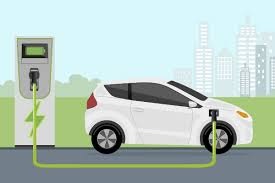Karnataka Deputy Chief Minister C N Ashwath Narayan on Monday said regulatory measures would be taken to make mandatory electric vehicle-charging infrastructure in high-rise buildings, metro stations, malls, IT parks, and apartments. With a view to encouraging e-mobility, he said the government aims to replace 50 per cent of all its vehicles with electric vehicles (EVs) in the coming 2-3 years.
The Deputy Chief Minister was speaking on the topic ‘Future of Sustainable Mobility’ at the Harvard-India conference, according to an official statement. He said Karnataka was looking forward to partnerships and concrete strategies with the USA in the e-mobility sector, the statement said.
According to Narayan, the goal is also to set up fast chargers along few important highways in the state such as the Bengaluru-Chennai highway and the Bengaluru- Mysuru one in order to establish world-class Karnataka Electric Mobility Research and Innovation Centre. “Lack of infrastructure for charging EVs still remains as major concern and the state is working towards improving the situation,” he said.
The government also has assessed the situation and has received feedback from citizens regarding discount charging at public places, dedicated parking for e-cabs, and mandating EV charging facilities in building by-laws to improve the infrastructure in the state, he said.
Noting that EVs can deliver practicality, sustainability, safety, and affordability characteristics, the Deputy Chief Minister said the country was power-surplus and is currently witnessing lower plant load factors due to minor capacity utilisation. As per estimates, the demand from EVs could greatly improve the utilisation factor of underutilised power plants, he said.
The Central government has been supporting the electric mobility efforts through funding research, providing a conducive platform to design, develop and demonstrate EV projects, he said. Countries like Norway, the USA and China could be examples for India in developing the e-mobility eco system in Karnataka, he said.
“The state has been able to garner a share of over 30 per cent market size and is planning its policy framework to garner a 50 per cent marketshare of the digital engineering innovation economy segments like clean tech, EV, aerospace, med tech and construction among others offer significant opportunities for growth,” Narayana said.

